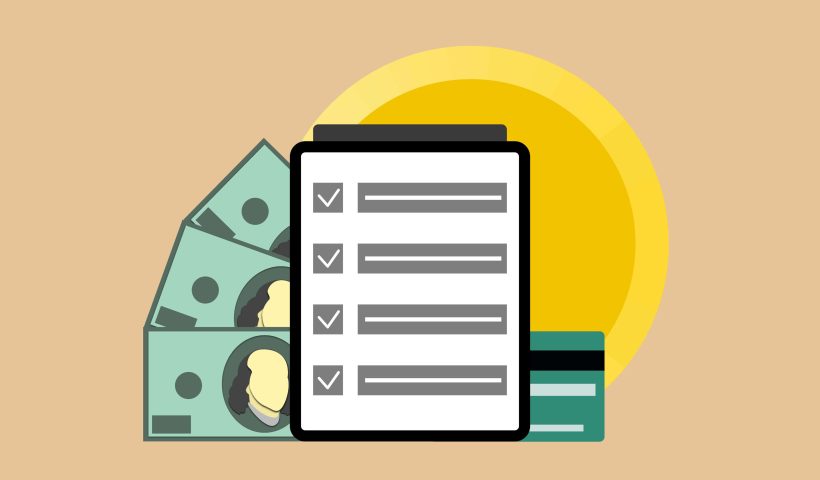Simple Solutions To Avoid Fines From HMRC

Meeting tax deadlines is one of the most important aspects of managing a business or handling personal finances. Unfortunately, it’s all too easy to overlook these important dates, which can lead to stressful last-minute rushes and, worse, hefty fines from HMRC for missed payments. However, there’s a straightforward, preventive measure that can save both time and trouble, and that’s setting up Direct Debits for tax payments. We’re exploring how using Direct Debit can keep you on track with your tax obligations, ensuring timely payments and helping you avoid unnecessary fines.
Bookkeeping and accounting is important and should be a top priority for business owners. At Joanna Bookkeeping we provide support when it comes to a whole range of services for your business, including how to implement simple solutions to avoid fines from HMRC, making sure your finances are in order, so you can continue to grow and succeed in your business.
Don’t hesitate to contact our Oxford-based accounting team, by booking a call, and let’s have a chat!
What is Direct Debit?
Direct Debit is a financial transaction service that allows pre-authorized withdrawals from your bank account to pay for various services. In the context of tax payments, it allows HMRC to automatically collect the taxes you owe directly from your bank account on the specified due dates. This means that once you authorise the setup, there’s no need to manually make payments each time a tax deadline comes around.
Will HMRC collect whatever they want? No. HMRC will only collect what you’ve submitted and said you are liable to pay. So, for example, they won’t collect a random amount of VAT liability from your bank account, but they will collect the amount that you calculated on a submitted VAT return. This means you have a full control overt the cash flow with a benefit of not worrying about making manual payments (saved time, Hurrah!) and avoiding late payment penalties.
How Does Direct Debit Work?
To set up a Direct Debit with HMRC, you’ll need to log into your HMRC online account and enter your bank account details to authorise the Direct Debit. Your tax agent can’t set this up for you. You can set up Direct Debits for various taxes, and here’s how it simplifies your tax payments:
Automatic Payments – Once set up, the payment amount due for your taxes will automatically be taken from your bank account on the deadline. This automation ensures that payments are never forgotten or missed.
Flexibility – You can cancel the Direct Debit at any time if your circumstances change, giving you control over your payments.
Security – Direct Debit is a safe way to make payments. The Direct Debit Guarantee offers protection, ensuring refunds in the case of an error, making it a secure choice for handling important tax payments.
Professional accountant from Oxford
Helping business owners managing their taxes
Managing your finances feels overwhelming? Our Oxford accountants are here to help.
Taxes You Can Pay via Direct Debit
The versatility of Direct Debit supports various tax payments, including:
VAT (Value Added Tax) – Automate your VAT payments to ensure they are always on time, especially crucial for businesses with regular taxable supplies.
Corporation Tax – Companies can manage their Corporation Tax efficiently, ensuring timely payments that protect their compliance status.
PAYE (Pay As You Earn) – For employers, automating PAYE payments streamlines the process of making regular tax and National Insurance contributions for employees.
Income Tax from Self-Assessment – Individuals required to complete self-assessment can avoid the January rush and potential penalties with Direct Debit.
CIS (Construction Industry Scheme) – Contractors can ensure their CIS tax deductions are handled promptly each month.
Machine Games Duty – Businesses operating gaming machines can adhere to their fiscal duties without the hassle of manual payments.
Soft Drinks Industry Levy – Companies manufacturing or importing soft drinks can maintain compliance with this levy through automated payments.
Benefits of Using Direct Debit for Tax Payments
Setting up Direct Debit for your taxes offers several advantages:
Avoids Fines – Timely payments prevent penalties and interest charges associated with late tax payments.
Improves Cash Flow Management – Knowing your tax payments are taken care of automatically helps with more accurate cash flow forecasting.
Reduces Administrative Burden – Direct Debit minimises the paperwork and administrative tasks associated with manual payment methods.
Incorporating Direct Debit into your tax payment practices is a wise strategy for any taxpayer seeking to simplify their financial obligations and avoid the pitfalls of missed payments. It’s a reliable, secure, and efficient way to manage your taxes, allowing you to focus more on the operational aspects of your business or personal finance management. Remember, staying proactive about your tax payments not only keeps you compliant with HMRC but also avoids the stress and financial strain of accumulating tax penalties.
Book a call with Joanna Bookkeeping for comprehensive support, tailored insights, and strategies built on experience. Get in touch with our dedicated Oxford accountant and let’s drive your business with confidence.

Your Accountant in Oxford
Oxford Office
Joanna Bookkeeping
The Wheelhouse Angel Court
First Floor, Angel Court
81 St Clements St
Oxford
OX4 1AW
Connect
joanna@joannabookkeeping.co.uk
01865 591952





